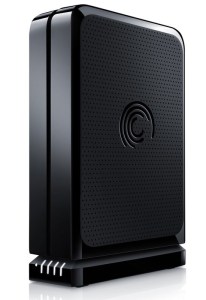
Last month, storage manufacturer Seagate revealed it was talking with unnamed parties about potentially taking the company off the stock market and going private as a way to pump money to shareholders, who would each get a portion of any purchase price. Now, the company says it has ended those talks, and will be launching an additional $2 billion buyback of its own stock to increase the stock’s value to shareholders.
“Management and the Board have chosen to cease discussions concerning a private equity-led leveraged buyout,” said Seagate CEO and chairman Steve Luczo, in a statement. “Given the strong debt markets, improving business conditions, and other financing options, Seagate has initiated a plan to further optimize its capital structure to maximize shareholder returns.”
Seagate has seen its revenues stagnate as both corporate and consumer PC sales slumped during the recent economic downturn; however, the company was apparently not able to generate enough interest from potential suitors, characterizing potential offers as “not in the best interest of the company or its shareholders.” Seagate says it believes the demand for hard disk drives has improved since it began considering a going-private transaction.
Seagate has actually gone private one before. Back in 2000, a group of investors led by Silver Lake Capital and the Texas Pacific Group took the company private in a transaction worth about $1.7 billion, but Seagate put itself back on the stock market in 2002 with a giant initial public offering; the effort raised some $870 million. However, the company saw its stock price drop to an all-time low at the beginning of 2010.
Seagate says it will fund the additional $2 billion buyback of its own stock using cash on hand, future cash flow, and “potential alternative sources” of funds, but hasn’t outlined any specific mechanisms for the buyback. The company says it expects to sell 170 million units this quarter, with revenue of at least $2.7 billion and a gross margin of at least 19.5 percent. If those figures work out, that would put over $525 million into Seagate’s pockets for the current fiscal quarter.


